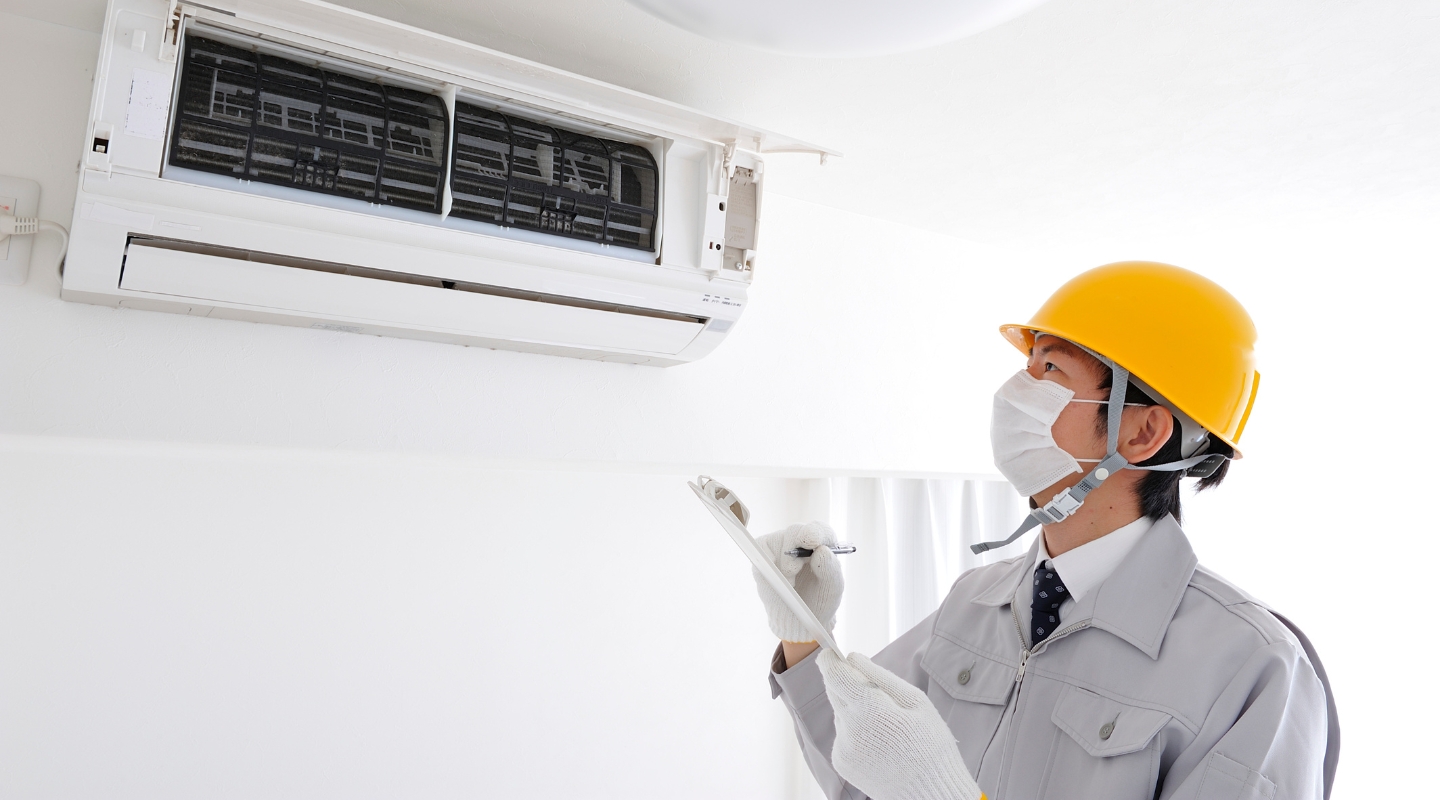
Singapore Aircon Servicing vs Chemical Wash: Which Service Does Your AC Need?
Choosing between regular singapore aircon servicing and chemical wash can be confusing for many homeowners and business owners. Both services are essential for maintaining your air conditioning system, but they serve different purposes and are recommended at different intervals. Understanding the distinction between these two maintenance approaches will help you make informed decisions about your aircon care, ensuring optimal performance while avoiding unnecessary expenses.
In Singapore’s demanding tropical climate, your aircon faces unique challenges that require strategic maintenance planning. The combination of high humidity, constant operation, and urban pollutants creates conditions where both routine servicing and intensive chemical cleaning play crucial roles in system longevity. This comprehensive guide examines both services in detail, helping you determine which approach best suits your specific needs and circumstances.
Understanding Regular Singapore Aircon Servicing
What Is Standard Aircon Servicing?
Regular singapore aircon servicing encompasses routine maintenance tasks designed to keep your system operating efficiently between major cleanings. This service typically includes filter cleaning or replacement, basic coil cleaning with water and brushes, drainage system clearing, and general system inspection. Standard servicing addresses surface-level contamination and performs essential maintenance tasks that prevent immediate operational issues.
The process begins with a comprehensive visual inspection of both indoor and outdoor units. Technicians examine electrical connections, check refrigerant levels, and assess overall system condition. They then proceed with filter maintenance, removing and cleaning washable filters or replacing disposable ones with appropriate specifications for your unit type.
Components Addressed in Regular Servicing
Filter Maintenance forms the foundation of regular servicing, as clean filters ensure proper airflow and protect internal components from contamination. Technicians carefully remove filters, inspect them for damage, and clean or replace them according to manufacturer specifications. This process is particularly important in Singapore’s dusty urban environment where filters become contaminated quickly.
Basic Coil Cleaning involves brushing and water washing of evaporator and condenser coils to remove surface dirt and debris. While this cleaning isn’t as intensive as chemical methods, it maintains adequate heat transfer efficiency for systems that haven’t accumulated heavy contamination. Regular coil maintenance prevents the buildup that eventually necessitates chemical intervention.
Drainage System Clearing ensures proper water removal from your aircon system. Technicians clear drain pipes, clean drain pans, and check pump operation where applicable. This maintenance prevents water leakage issues that commonly occur in Singapore’s humid climate when drainage systems become blocked.
When Regular Servicing Is Sufficient
Regular servicing is ideal for aircon units that receive consistent maintenance and operate in relatively clean environments. If your system has been serviced regularly every 3-4 months and shows no signs of heavy contamination, standard cleaning typically maintains adequate performance. This approach is cost-effective for well-maintained systems that haven’t developed significant buildup issues.
Signs that regular servicing is appropriate include normal cooling performance, clean-smelling air output, and absence of water leakage. If your aircon starts up normally, maintains set temperatures efficiently, and doesn’t exhibit unusual noises or odors, regular servicing can maintain optimal performance without intensive chemical intervention.
Understanding Aircon Chemical Wash
What Is Chemical Wash Service?
Singapore aircon chemical wash represents a comprehensive deep-cleaning process that uses specialized chemical solutions to remove stubborn contamination that regular cleaning cannot address. This intensive service involves partial or complete system disassembly, allowing technicians to access and thoroughly clean internal components that accumulate heavy buildup over time.
The chemical wash process begins with system shutdown and refrigerant recovery where necessary. Technicians then disassemble accessible components, including fan coils, blowers, and drain pans. Each component receives individual attention with appropriate chemical solutions designed to dissolve mineral deposits, eliminate mold and bacteria, and restore original cleanliness levels.
Comprehensive Chemical Cleaning Process
Component Disassembly allows access to internal parts that regular servicing cannot reach effectively. Technicians carefully remove fan coils, blower wheels, and other accessible components, ensuring proper cleaning of all surfaces. This disassembly process requires expertise to avoid damage while enabling thorough cleaning of contaminated areas.
Specialized Chemical Application uses industry-approved solutions to dissolve different types of contamination. Alkaline cleaners remove mineral deposits and scale buildup, while antimicrobial treatments eliminate mold, bacteria, and other biological contaminants. Each chemical serves specific purposes, requiring proper selection and application techniques for optimal results.
Thorough Rinsing and Reassembly ensures complete removal of cleaning chemicals and proper system restoration. Technicians rinse all components with clean water, removing chemical residues that could affect performance or create health concerns. The reassembly process follows manufacturer specifications, ensuring proper fit and function of all components.
When Chemical Wash Is Necessary
Chemical wash becomes necessary when regular servicing cannot restore adequate system performance. Signs indicating chemical wash requirements include persistent odors, reduced cooling efficiency despite regular maintenance, visible mold or heavy contamination, and frequent water leakage issues. These symptoms suggest contamination levels that require intensive chemical intervention.
Systems operating in challenging environments often require chemical wash more frequently. Restaurants, industrial facilities, and buildings near construction sites accumulate heavy contamination that overwhelms regular cleaning capabilities. In these situations, chemical wash becomes essential maintenance rather than optional deep cleaning.
Comparing Service Scope and Intensity
Depth of Cleaning Comparison
Regular servicing addresses surface-level contamination and maintains systems in good condition, while chemical wash penetrates deep into components to remove embedded contamination. The cleaning intensity differs significantly, with chemical wash capable of restoring heavily contaminated systems to near-original condition.
Standard servicing typically maintains 80-90% of system efficiency when performed regularly, while chemical wash can restore 95-100% efficiency in contaminated systems. This performance difference becomes crucial when energy costs and cooling effectiveness are primary concerns.
Time and Disruption Factors
Regular servicing usually requires 1-2 hours per system with minimal disruption to occupants. The process involves accessible components and doesn’t require extensive disassembly, allowing relatively quick completion while maintaining system availability.
Chemical wash requires 3-6 hours per system due to disassembly, chemical application, and thorough rinsing requirements. This extended timeline means greater disruption but provides comprehensive cleaning that addresses contamination issues regular servicing cannot resolve.
Cost Analysis and Value Considerations
Investment Comparison
Regular servicing costs typically range from $45-80 per unit depending on system type and complexity. This affordable maintenance approach provides excellent value for systems in good condition, preventing deterioration while maintaining adequate performance levels.
Chemical wash costs range from $80-180 per unit, reflecting the intensive labor and specialized materials required. While more expensive initially, chemical wash can restore system efficiency to levels that reduce energy consumption and extend equipment lifespan, often providing superior long-term value.
Long-term Financial Impact
Regular servicing every 3-4 months prevents major contamination buildup, potentially reducing the frequency of chemical wash requirements. This preventive approach minimizes long-term maintenance costs while ensuring consistent system performance.
Neglecting regular servicing often necessitates more frequent chemical wash services, increasing overall maintenance costs. The combination of both services – regular maintenance with periodic chemical wash – typically provides optimal cost-effectiveness for most applications.

Health and Indoor Air Quality Considerations
Air Quality Impact Differences
Regular servicing maintains acceptable indoor air quality by removing surface contaminants and ensuring proper airflow. Clean filters and basic coil cleaning prevent most air quality issues in well-maintained systems operating in typical environments.
Chemical wash significantly improves air quality by eliminating deep-seated mold, bacteria, and other contaminants that cause health concerns. This intensive cleaning is particularly beneficial for occupants with allergies, respiratory conditions, or compromised immune systems.
365 Aircon provides expert guidance on selecting appropriate service levels based on your specific air quality requirements and system condition. Their experienced technicians assess contamination levels and recommend optimal cleaning approaches to ensure healthy indoor environments.
Making the Right Service Choice
Assessment Criteria
Determining appropriate service levels requires evaluating system condition, operating environment, and performance requirements. 365 Aircon technicians conduct thorough assessments to recommend optimal maintenance approaches based on actual system needs rather than predetermined schedules.
Consider factors including system age, usage patterns, environmental conditions, and occupant health requirements when selecting service levels. Systems in challenging environments or serving sensitive populations may require more intensive cleaning approaches regardless of apparent condition.
Professional Recommendation Process
365 Aircon’s systematic assessment process examines system performance, contamination levels, and environmental factors to recommend appropriate service intervals and cleaning intensity. This professional approach ensures optimal system care while avoiding unnecessary expenses or inadequate maintenance.
Conclusion
Both regular singapore aircon servicing and chemical wash play essential roles in maintaining optimal system performance in Singapore’s challenging climate. Regular servicing provides cost-effective maintenance for systems in good condition, while chemical wash addresses contamination issues that require intensive intervention. Understanding when each service is appropriate ensures optimal system care, energy efficiency, and indoor air quality while managing maintenance costs effectively.
Frequently Asked Questions
Q: How do I know if my aircon needs chemical wash instead of regular servicing?
A: Signs indicating chemical wash requirements include persistent bad odors, reduced cooling efficiency despite recent servicing, visible mold or heavy dirt buildup, and frequent water leakage. If regular servicing hasn’t resolved performance issues, chemical wash is likely necessary to address deep contamination. Learn more about Singapore aircon servicing vs chemical wash.
Q: Can I alternate between regular servicing and chemical wash?
A: Yes, this approach is often optimal. Most systems benefit from regular servicing every 3-4 months with chemical wash annually or when performance issues arise. This combination maintains system efficiency while managing costs effectively.
Q: Will chemical wash damage my aircon components?
A: Professional chemical wash using appropriate solutions and techniques is safe for aircon components. However, improper chemical selection or application can cause damage, making professional service essential for this intensive cleaning process.
Q: How long do the benefits of chemical wash last?
A: Chemical wash benefits typically last 8-12 months in normal operating conditions. However, systems in challenging environments or those receiving irregular maintenance may require more frequent chemical cleaning to maintain optimal performance.
